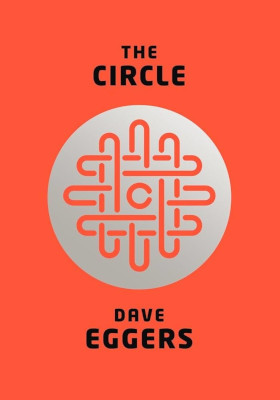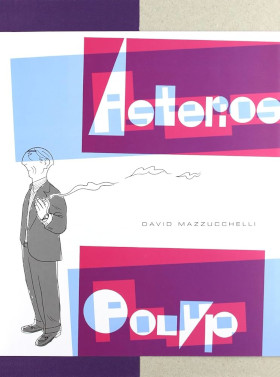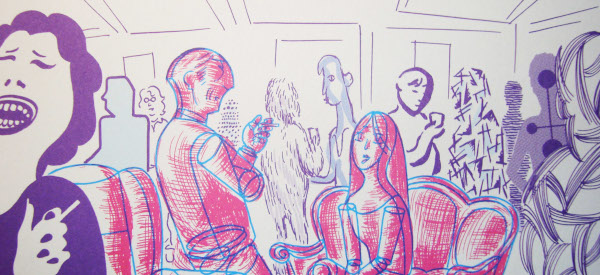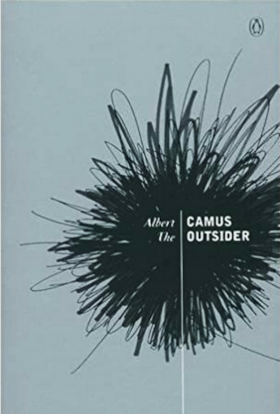
The Circle
By Dave Eggers
The Circle follows the career of Mae Holland, who joins the eponymous company after a few strings are pulled by a college friend Annie. Annie has risen through the ranks and is now highly placed. The Circle is a large and powerful Big-Tech company, getting even bigger and pushing its technology and vision ever further through society, on a global scale. This book was published over ten years ago but is still relevant today, especially as the use of "AI" grows.
There is no longer any anonymity on the internet because Circle's "TruYou" system has taken over identity management and it is required for almost everything now. People know who does what, so bad online behaviour has vanished. And more, their consumer and business marketing and advertising program is just about essential to do any commerce on the internet. Combined with the reach of a massive social media platform ("zings", "smiles" and "frowns" fly about in the ether), the company's reach is planet wide. This means the Circle has huge amounts of data available to its people and algorithms. Even more: small cameras that can be placed anywhere easily, broadcasting 24/7. You can easily look up the quality of the waves at the beach you like to surf from. There is also a project to record and broadcast all your life interactions through a camera around your neck: being "transparent". In the name of democracy, politicians are encouraged to take the brave step of going transparent and the numbers taking part are rising.
As you see, this is Big Tech on steroids.
A cursory read and understanding of the above will make you think of a lot of downsides to this new world order. Eggers mostly leaves the dystopian and darker aspects in the background but does show the terrible consequences for some. It is approaching a panopticon, total surveillance of the sort envisaged for a prison by Jeremy Bentham in the 18th Century. There is little or no discussion of the firm's finances or investors, but we do know there was an IPO, so there will be shareholders. There is a lot of power being wielded, by who? It is left unsaid. Similarly, the acquiescence of sovereign government, domestic and foreign, is not mentioned, other than brief mentions of something like "trouble" in Washington or the EU.
But the juggernaut rolls on; the direction of travel is clear in the world of The Circle. Something very noticeable (apart from some of the speech patterns, see below) was Eggers' portrayal of how enthusiastic and willing the thousands of employees of the company are as they march the world towards a technocratic and dictatorial Final State of complete surveillance. Holland accepts and eagerly rationalises what to most would be an appalling and nightmarish situation: both the result of the technological revolution and the, almost comical, workplace gyrations. Independence of thought is not encouraged, and seems to be easily internalised by the worker bees. I found this difficult to believe. But groupthink does exist and social pressure to "be kind" (cf cancel culture recently) is something to be worried about.
Luckily, so far, there is no one person, company or government fully in charge. But if desires of both an industry and a government do converge, the danger signs should start flashing very brightly.
It's a readable book and a warning about what sort of world we're hurtling towards. I found it hard to believe so many clever people would go along with such an all-encompassing world plan though and some characters were built up to be a stereotype. The potential of "AI" to reduce even further our scope for privacy and human creativity makes the warning more critical today.
Regarding the writing style. I have a quibble about it because it badly jars sometimes. Rather than say "yes" or "no" to answer questions, the people here say things like "I am", or "It is" e.g. "Does that make sense?", "It does" (page 146). They do this all the time, to straightforward questions we would answer naturally with a yes or no. To me, this is highly affected and unnatural speech. I noticed this, but on a much smaller scale, when reading The Expanse series but it is much worse here.

Asterios Polyp
By David Mazzucchelli
This is a graphic novel published in 2009 by David Mazzucchelli, a comic artist acclaimed for his art on Frank Miller's 1987 re-telling of Batman's origin, Batman Year One. He is not a prolific artist but his work has been very influential in the field of comics and graphic novels; seen as a benchmark in the more mature themed and designed work that came of age in the later Twentieth Century. He has also taught comic book storytelling at the School of Visual Arts in New York.
There are no superheroes in Asterios Polyp. This is the story of a man who has a high opinion of himself and is not one to concern himself with what others think. He teaches Architecture in Ithaca, New York State, but has never actually built anything (he calls himself a "paper" architect). His life is one of order and straight lines but he marries a woman (Hana, a Japanese-American) quite the opposite: she experiments with objects and form in her art, is emotional and open. When his apartment is lost in a fire he goes on a journey both literal and metaphorical; an attempt to find, and perhaps fix, himself.
This is just a great work of art and I think a master-piece. Story and words aligning perfectly with the beautifully realised stylish pictures that Mazzucchelli is famous for. The art is sometimes experimental but very readable; a spare two colour design, and range of marks and styles. I can't praise this enough: it is a comic-strip work of the highest order but much more than that. People bandy around the term "graphic novel" but I have often been a little uncomfortable with it because so much of the field is, let's face it, still quite childish in many respects (often the story). This is different. A true graphic novel for real grown-ups. Highly recommended.


The Outsider
By Albert Camus
This was Camus' first novel, published in 1942 during the Nazi occupation of France. He was born and raised in French Algeria, to so-called pied-noir parents, but was living in Paris when Germany invaded.
It is a novella so quite short, and it is not hard to read, other than its unsettling protagonist. You are in the head of a very strange young man, Meursault, a strangeness seen clearly from the very first paragraph we read :
Mother died today. Or maybe yesterday, I don't know. I had a telegram from the home: 'Mother passed away. Funeral tomorrow. Yours sincerely.' That doesn't mean anything. It may have been yesterday.
Meursault appears to be quite unemotional and lacks interest in human relationships. An office worker in Algiers, he has a girlfriend and likes to go to the cinema and swim in the sea with her. When she asks if he loves her, he replies "it didn't mean anything and I probably didn't". Not the sort of answer any young woman would expect in the situation. He seems incapable of dissembling at all, or telling the little white lie that side-steps something disagreeable. He probably comes off as inhuman, especially to the lawyer who has to defend him later in the book :
He didn't understand me and he rather held it against me. I wanted to assure him that I was just like everyone else, exactly like everyone else. But it was all really a bit pointless and I couldn't be bothered.
Maybe the French have a word that fits with the above quote: ennui.
Meursault has need of a lawyer because he has killed a man: an Arab. It is unclear why, although there were tensions and intimations of threat. There is no passion in this crime, no anger or blood lust, but the hot sun during the day seems to have left him somewhat unbalanced.
Up until this point, I had not researched the book or its background; what was thought about it, or its place in any philosophical theory. I knew it had some connection with French intellectual thought and existentialism, particularly Sartre. Apparently, Camus rejected the "existentialism" label and preferred "absurdist". I always think it is best to approach a book without too many preconceptions. Today, we might make some diagnosis or other about Meursault's state of mind. There are plenty of those available.
A short, unsettling but worthwhile book. One of the "points" a novel supposedly has is putting the reader into the "head" of the characters and experiencing a different point of view. You certainly get that here.



